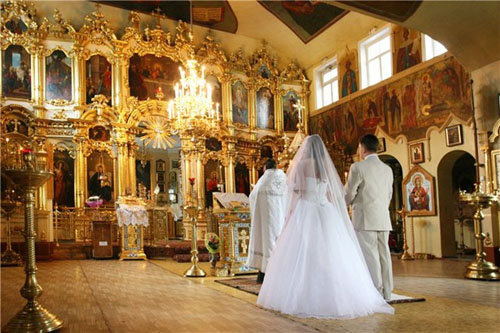In the Sunday New York Times, the Styles section always has wedding announcements, along with a report on a recent wedding and a visit with a couple whose marriage was reported in the past, to see how their marriage has gone. Frequently it has not.
Recently I was traveling home by air and the young lady seated across the aisle from me was reading a fat magazine on Weddings. The entire contents seemed to be devoted to dresses for brides and bridesmaids and the cost of some of them was more than ten old-fashioned weddings in their entirety, reception included, would have cost. Perhaps I exaggerate – but not by much.
I have become aware in recent years that the main event is the reception, and consequently people ask to have their wedding ceremony on a day that is compatible with their ability to rent the venue of their choice for the real celebration that comes after the wedding.
All this adds up to a concern shared by many priests, pastors, and rabbis.
Starkly put: does marriage bear an inward, sacred nature any more or has the whole matter become an affair of externals?
When the main consideration is clothing and reception, food and drink at a proper venue – and add in a wedding planner as well, a position that did not exist a generation ago – may we conclude that the focus has shifted from inward meaning to outward display?
For most people in the USA, marriage is a civil ceremony, and that’s the end of the matter. Various religions have their own ways of proclaiming the sacredness of the marriage bond. I can only speak as an Orthodox Christian priest. Among Roman Catholics, Orthodox, and some Episcopalians marriage understood as a sacrament. This needs a few words of explanation.
A sacrament is a way to see the world as a union of matter and spirit, which is bodied forth in particular ceremonies. Many people are familiar with the ancient definition of St Augustine: “a visible sign of an invisible grace.” The State provides nothing beyond legality, and the “visible sign” is what makes marriage Christian in the sight of these Churches.
Marriage as a sacrament celebrates the covenantal aspect of marriage. That is, those who marry make a covenant (call it is a contract if you must, but contract is a cold and limited term) with one another for love, support, and mutual growth in union with one another. This mirrors God’s covenant with us, commemorated in myriad ways in and through the church but pre-eminently through sacraments: baptism, chrismation, holy communion, rites of forgiveness and healing, ordination, and of course marriage.
Marriage is the sacrament of love. It embodies our recognition that we are made for love and that God’s love is the beginning and the end of marriage, symbolized by the sacrament that joins the couple to God in love.
When you subtract this sacramental aspect from marriage, you reduce it to a civil contract. A civil contract can be altered, broken, or dismissed on legal grounds. The contract model focuses on legality, not personality. Divorce is now accepted, somewhat casually, as one of the contractual options available to us. The wedding itself is reduced to a contract, and hence the emphasis shifts to law rather than relationship. That legal contract, my friends, is what marriage seems to have been reduced to. The sacredness is lost.
If the sacredness is lost, let’s just have a party, as you might do to commemorate other contracts. No need to invite Jesus to the wedding to transform it by his presence, like water into wine.

















